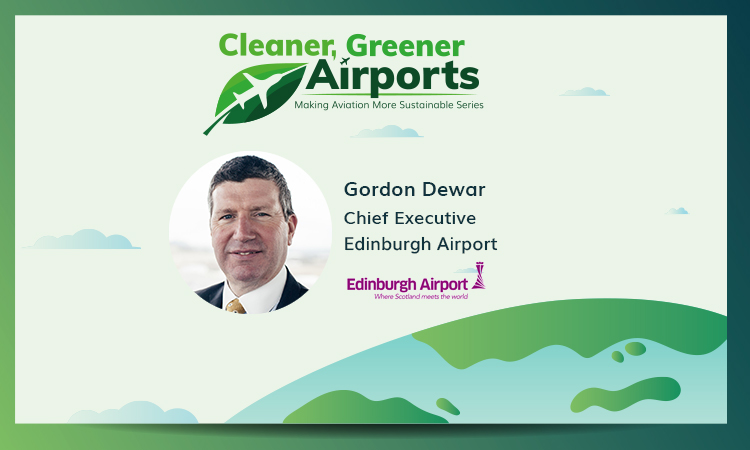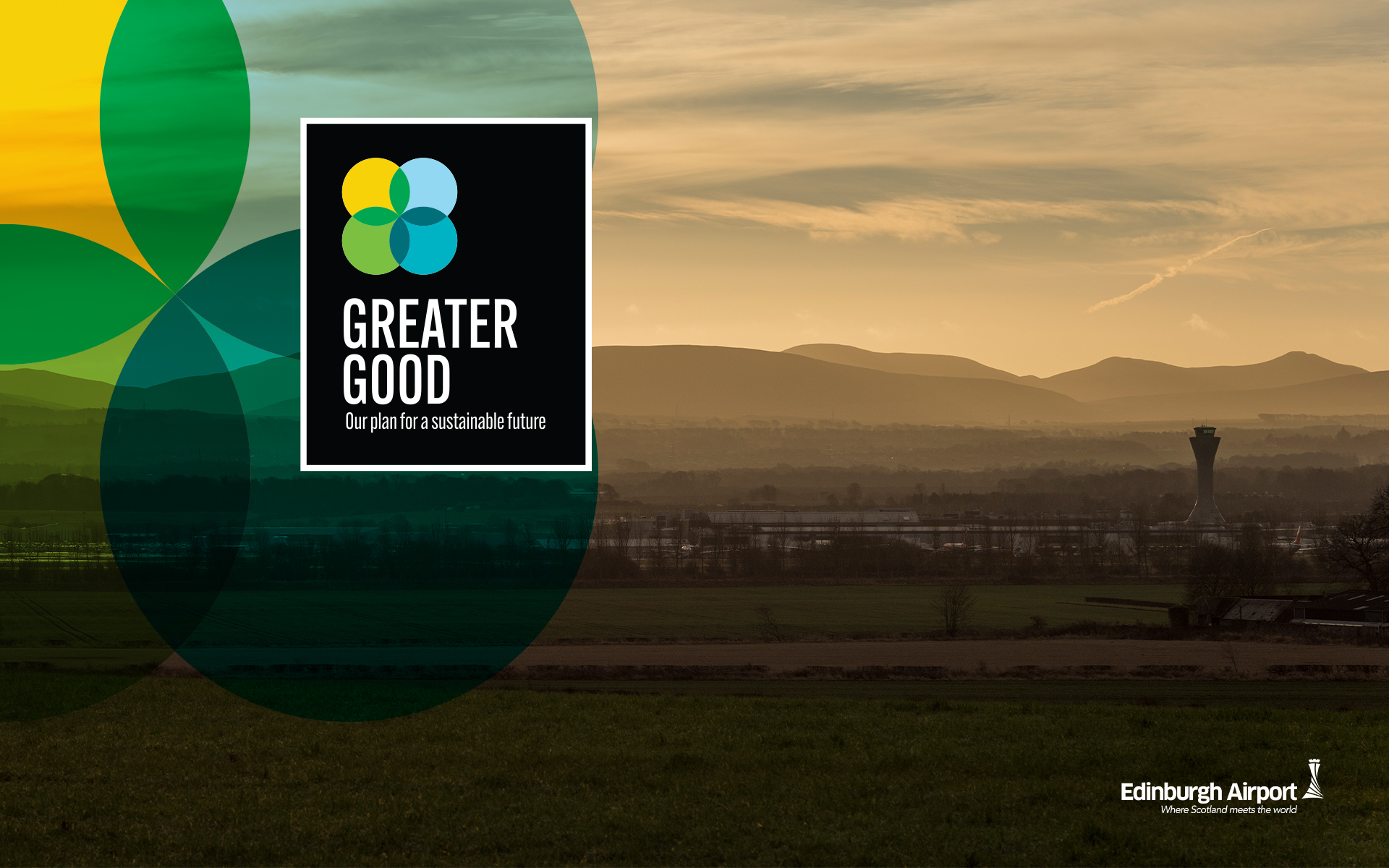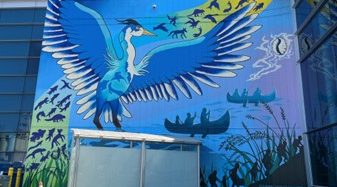Cleaner, Greener Airports: Making Aviation More Sustainable – Edinburgh Airport
Posted: 6 August 2021 | Gordon Dewar | No comments yet
Gordon Dewar, Chief Executive at Edinburgh Airport, explains how the pandemic is not deterring the airport from their sustainable goals, in the latest installment of International Airport Review’s exclusive series.


A cleaner and greener future is a goal we all share, and as airports, we probably feel more acutely that desire to deliver such a future. We are very aware that people view aviation as a major emitter and an industry that needs to change.
Do we deny the need to change? No, because every business in the world is looking to change and improve. Can aviation deliver a sustainable future? Yes, but we have to determine what we define as a sustainable future, as that is a sticking point in this debate where there is not yet an off-the-shelf zero carbon replacement for jet engines. But that is coming, and the debate should be how do we minimise and reduce our impacts to bridge that technology gap.
More than just carbon
For Edinburgh Airport, carbon is part of that debate, but the sustainable future we are seeking to deliver is about more than just carbon. A plan to reach net zero should be at the core of wider strategy to make all parts of an organisation sustainable into the future.
Why? Well, too often when an airport talks about sustainability the first thing we hear is “but aviation…” and what follows is a very black and white approach to a more complex issue. While some of that criticism is fair, it often conveniently ignores what an airport brings to a country like Scotland.
I’m sure this is something our fellow airports across Europe and the rest of the world have also come up against and I’m sure they share our frustration at this slightly myopic view, which is why we have put together a strategy which we think encompasses everything in relation to an airport and its role in delivering a sustainable future.
The impact of COVID-19
Of course, the pandemic has changed things. Dramatically. In 2019, as Scotland’s busiest airport, we saw 14.7 million people come through our doors. Unfortunately, our 2020 passenger numbers were down 76 per cent on the previous year as we handled a little under 3.5 million passengers – our lowest figure since 1995.
Why is this important? Well, it would be easy for us to think that we should prioritise recovery and recovery alone. We could place sustainability at the side in a box marked ‘Nice to do, but not just now’ and continue to proclaim we are working towards a sustainable future, but that we have to focus on our recovery first.
We could do that. But we won’t. Because the pandemic has presented us with time to reflect on ourselves as a business, as an economic contributor, as an employer, as a neighbour and as a citizen of Scotland and the world. We think that as we begin to face the first shards of light in a potential recovery from COVID-19, we should be looking at how we recover better and how we plan to tackle the immediate recovery we face and the years beyond it.
In terms of Edinburgh Airport and Scotland, our recovery will be important to many people and businesses across the country. We are a facilitator. For example, for an economy on the tip of an island off the north-west coast of Europe, travel is essential whether that’s connecting with family, forging business links or transporting medical and cargo supplies.
And that connectivity brings employment, economic wealth, migration, cultural diversity, global influence and competitiveness and yes, allows holidays – all things of the upmost importance to a country like Scotland, now and in the future. As a result, we have come up with a sustainability strategy that realises we have to act for the Greater Good, which is the name of our strategy.


Greater Good
Greater Good is built on a simple premise – Scottish aviation must be sustainable in order for it to continue to deliver the benefits this country derives from it, without compromising future generations. To us, sustainability involves linking environmental, societal and economic issues and solutions through collaboration, innovation and partnership. All working in concert for the greater good.
We launched the strategy in June and we confirmed we would become the first airport in Scotland to build a solar farm on its airfield. The 11 acre site will provide 26 per cent of the airport’s energy needs and construction is due to begin later this year, with it expected to be operational next summer. It’s an exciting project which speaks about one side of the sustainability agenda, and we were also able to confirm carbon neutral status for emissions under its direct control, demonstrating our commitment to a more sustainable future.
We have to make our business, Scotland’s gateway to the world, sustainable and a social and economic asset that serves future generations. To do that, we must carefully consider our impact on the environment and the way we interact with others and act accordingly.
Limiting climate change and its effects are as much social imperatives as environmental ones, and the creation and sustaining of good jobs benefit the economy and society and all of this benefits Scotland, and we think our plan understands the connections and delivers for all, and that’s what our strategy seeks to achieve.
Greater Good is built on four pillars:
- Zero Carbon – working in partnership to improve our approach to climate change
- Enhancing Scotland – creating an airport to showcase the best of Scotland whilst delivering the best passenger experience possible
- Scotland’s Best Business – as a hub and facilitator industry, we will work with our people, passengers and partners to create a business with integrity
- Trusted Neighbour – working with our neighbouring communities we will share the benefits of sustainable growth with them and mitigate any negative impacts.
Now, they might seem high level, but we’ve formulated these goals by aligning with local and national priorities. We all work in regions in countries and we have a responsibility to deliver for them as well as for the business, and that’s what we want to do. We want to contribute to society in more ways than just travel. We know we already do that, but we want others to realise that and work with us to make that as positive as possible.
Recognising our role in sustainable aviation
We also recognise the importance of concerted and accelerated global action in this decade to deliver on the Paris Agreement to limit climate change and on the UN Sustainable Development Goals.
And I think this speaks to the wider ambitions of firms and companies across the world. For example, we are owned by Global Infrastructure Partners, a fund that invests in many firms across the world. They have been a driving force in our desire to achieve this sustainable future because as the conversation has changed, so have their sustainability and Environment-Society-Governance requirements. We want to, and should, be involved in this conversation.
To come back to a point I made earlier, airports and aviation are often at the sharp end of criticism when it comes to the climate. We know the global aviation industry produces around two per cent of all human-induced CO2 emissions and that’s two per cent too much, but it’s not quite as much as some people would have you believe, and the zero carbon transition we seek will only be achieved by the collective efforts of governments, society, people and business. We understand the scale of the challenge and will play a full part in those efforts by taking responsibility for what we can control and influencing others such as airlines and handling agents to come with us.
Collaboration is key
Furthermore, and more importantly – we cannot simply be excluded from a debate that affects us all and which will require a collective effort to resolve. A business and an industry that wants to become more sustainable and be part of a more sustainable and net zero world should absolutely have a seat at the table. Speaking for Edinburgh Airport, we will play a full and energetic role in the effort required.
Over the past decade Edinburgh Airport has grown quickly, breaking Scottish records and cementing its position as Scotland’s largest airport. During that time, we’ve worked hard to understand our impact on Scotland, both positive and negative, and develop and implement plans to amplify the positivity and mitigate or manage the negativity.
And now we have to strike a balance between the social and economic benefits of travel and the environmental impact. We need to maximise the former and do everything we can to mitigate the latter in advance of full decarbonisation of aviation.
It’s a responsibility on all of us to work towards a more sustainable world and we should be working together to deliver it rather than isolating people who want to contribute. That’s not a sensible approach and will only frustrate Scotland’s, and the world’s, progress on this most important of journeys.
Quite simply, carbon is the problem and we have laid out a comprehensive plan to do what we can to combat it. It’s about doing what we can with what we control and influencing the things we don’t control – all for the Greater Good.


Rebranding the airport as the place where ‘Scotland meets the world’, Gordon has overseen significant capital investment in capacity, productivity improvements and customer service enhancements that have been recognised through airport and wider business awards in Scotland, the UK and internationally.
Gordon spent 4 years with BAA running Glasgow and Edinburgh airports through periods of extensive investments in terminal capacity and passenger growth from 2007 to 2010. He then spent 2 years as Chief Executive at Bahrain International Airport creating a independent and profitable business for the first time after a carve out from Government.
Gordon has held a number of senior positions with leading transport operators, including commercial, general management and business development roles. Prior to this he spent 10 years in Transport Consultancy.
Stay Connected with International Airport Review — Subscribe for Free!
Get exclusive access to the latest airport and aviation industry insights from International Airport Review — tailored to your interests.
✅ Expert-Led Webinars – Gain insights from global aviation leaders
✅ Weekly News & Reports – Airport innovation, thought leadership, and industry trends
✅ Exclusive Industry Insights – Discover cutting-edge technologies shaping the future of air travel
✅ International Airport Summit – Join our flagship event to network with industry leaders and explore the latest advancements
Choose the updates that matter most to you.
Sign up now to stay informed, inspired, and connected — all for free!
Thank you for being part of our aviation community. Let’s keep shaping the future of airports together!
Related topics
Cleaner, Greener Airports: Making Aviation More Sustainable Series, Emissions, Social responsibility, Sustainability, Sustainable development

















